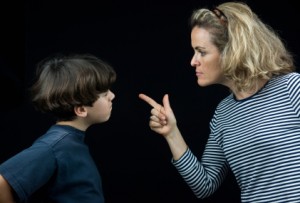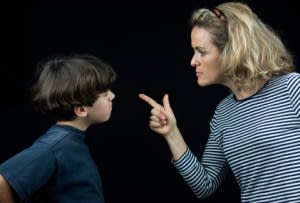 This article was featured in Jewish Action Fall 2008.
This article was featured in Jewish Action Fall 2008.
In the period that will precede the coming of Mashiach . . . youth will blanch the faces of elders; elders will stand in the presence of minors—the son derides his father; a daughter rises against her mother [and] a daughter-in-law against her mother–in-law” (Sotah 49b).
“Michael, it’s not right to take things that don’t belong to you without asking!”
“Whatever . . . ,” comes the placid response, voice drifting as the seven-year-old’s attention shifts to his brother’s mini-digital camera.
Not too long ago, children would have affirmed their father’s rebuke. Perhaps they would have remained silent out of deference. Perhaps they would have defended their behavior. Perhaps they would even have challenged their father. In any case, there was an implicit recognition that the admonishment meant something.
The “whatever” response, pervasive in today’s youthspeak, is insidious. While not overtly disrespectful, it signifies that the parent’s moral code is perceived as but one of a number of equally legitimate moral codes (which may also include the child’s). The youngster doesn’t attempt to undermine parental authority—he doesn’t acknowledge there even is such a thing.
New Social Order
We, in the United States, live in a democracy. In a democracy, one person is not supposed to have more rights than another. Over the past few decades we have extended this principle to include even minors: Five-year-olds are instructed to address the silver-haired real estate agent not as “Mrs. Jacobs,” but rather as “Sarah.” Children rate their teachers’ performance on the Internet. And the list goes on.
Thanks to a sensation-obsessed media, kids are being exposed like never before to the crimes and misdemeanors of adults—whether it’s domestic violence, celebrity infidelities or the latest corporate scandal. Why, our youth wonders, should age, experience or social standing make a difference in how we relate to adults? We are all peers.
A peculiar reversal has occurred. Adults are emulating children. Retirees don shorts, white running shoes and Mickey Mouse T-shirts and hit the malls or amusement parks. There is ever more casualness in dress, language and even standards of politeness. Our society is fixated with appearing young. Strangely, while kids are in a hurry to become adults, adults are trying to embrace their inner child.
Part of the reason for this trend is that we are confused about what it means to be an adult. Do we associate adulthood with divorce? With a mid-life crisis? Or do we associate this stage of life with wisdom, self-control and a sense of responsibility to guide the younger generation?
Historically, parents were a child’s connection to his or her spiritual heritage. Today, with so many of us cut off from the wisdom of our forebears, this defining role has been curtailed.
Now, however, while teens and young adults are becoming CEOs, their aging grandparents are placed—usually against their will—in unfamiliar homes to be cared for by strangers. Respect for elders erodes as our youth dispenses with the old and venerates the new.
“Honor Your Father and Your Mother”
Honoring one’s parents is the fifth of the Ten Commandments. The directive entails “offering all manner of assistance similar to the way that a servant serves his master” (Chayei Adam 67:4). One of the obligations associated with the Biblical injunction is to stand up when one’s mother or father enters the room. The Ashkenazic custom is to rise at least once in the morning and once in the evening, while the Sephardic custom is to do so every time.
Nowadays, this practice is very much neglected. In Torah-observant homes, it is rare to see a teenager stand up as a sign of respect when his parent enters the premises. According to Jewish law, parents, not wishing to burden their children, can absolve them of the requirement—which seems to be the norm today.
However, parental waiver must be explicit (Yoreh Deah 240:19). Moreover, according to some opinions, unless the parent states explicitly that a waiver applies forever, the child must request permission each time he wants the parent to forgo his or her honor. In the case that a parent proactively exempts his child from standing up for him, the child honors him by fulfilling his request at that particular time. (See Responsa Maharam Shick, Yoreh Deah 218 and Responsa Shevet Halevi 2:111:15.) According to Sefer Chassidim (673), if parents waive their entitlement, children should still honor them by rising in their presence.
Even if we assume that the conduct of most frum families is in line with halachah, the question is, In today’s social context, can we afford to continue in this manner? The mitzvah of rising as a show of respect to parents—far from being anachronistic—is needed now more than ever. It’s not that parents have a need to be honored, it’s that kids have a need to honor parents.
Moreover, as Sefer HaChinuch (33) points out, the mitzvah of honoring and revering parents is training ground for honoring and revering God. Hence, a child must rise for a parent even if the parent is blind and unaware that the child is rising (Chazon Ish, Yoreh Deah 151).
Chazal equates the honor due a parent with that due one’s primary Torah teacher (see, for example, Birkei Yosef 240:1). And according to Rema (Yoreh Deah 242:18), standing for one’s teacher is like standing in the presence of a Sefer Torah. Just as he does in shul when the Torah is being carried around, a child must remain standing until his mother or father enters the room and sits down, is out of sight or is considered to have “arrived” at his or her destination.
What is the connection between one’s parent and one’s Torah teacher? The primary role of a parent is to be a moral teacher. The root of the Hebrew word for parents, “horim,” is the same as that for teachers, “morim.” A society that doesn’t stress the importance of respecting one’s parents will also fail to accord respect to its teachers, its leaders and, ultimately, its highest Torah authorities. By divesting themselves of their moral trailblazers, our heirs cut themselves off not only from their past but also from their future.
Pilot Project
Around two years ago my wife and I had an idea: We would try to get our preschool children into the habit of standing up for us.
It turned out to be easier than we thought. We never enforced the ritual; we encouraged it, and our charges earned “mitzvah points” every time they did it. For them, it was fun. They would anticipate which room we were headed to, run ahead of us, plop onto the floor, and then jump up yelling “kibbud av ve’eim” (“honor your father and your mother”) as soon as my wife or I walked in. They’re still at it, without the carrot dangling over them, and now even our two-year-old joins in the action.
When my parents visit, I stand up for them. The first time my kids saw their dad do this, their eyes lit up. Admittedly, it doesn’t come naturally, and my wife frequently has to remind me to do so. In order not to make my parents feel uncomfortable, I privately explained to them that I am doing it so my children will emulate my behavior. But I know I’m also according my parents the respect they deserve.
When our children habitually honor us, they become more inclined to listen to our rebukes and accept our guidance. At the same time, it helps remind us of the awesome responsibility we have as parents, and to always conduct ourselves in a befitting manner.
Of the numerous ways our children can practice honoring us, rising is one that can have a powerful effect. The whole body is involved in the act, and the fact that it’s often inconvenient carries a relevant message: There are countless times when we must obey our elders, who have our best interests in mind, even though we may not feel like it.
People often ask me, “Why should I expend effort trying to get my kids to stand up for me when I can’t even get them to speak politely to me?”
That’s exactly the point.
Mr. Botwinik is a freelance writer and the dating columnist for the Ottawa Jewish Bulletin.
The words of this author reflect his/her own opinions and do not necessarily represent the official position of the Orthodox Union.
